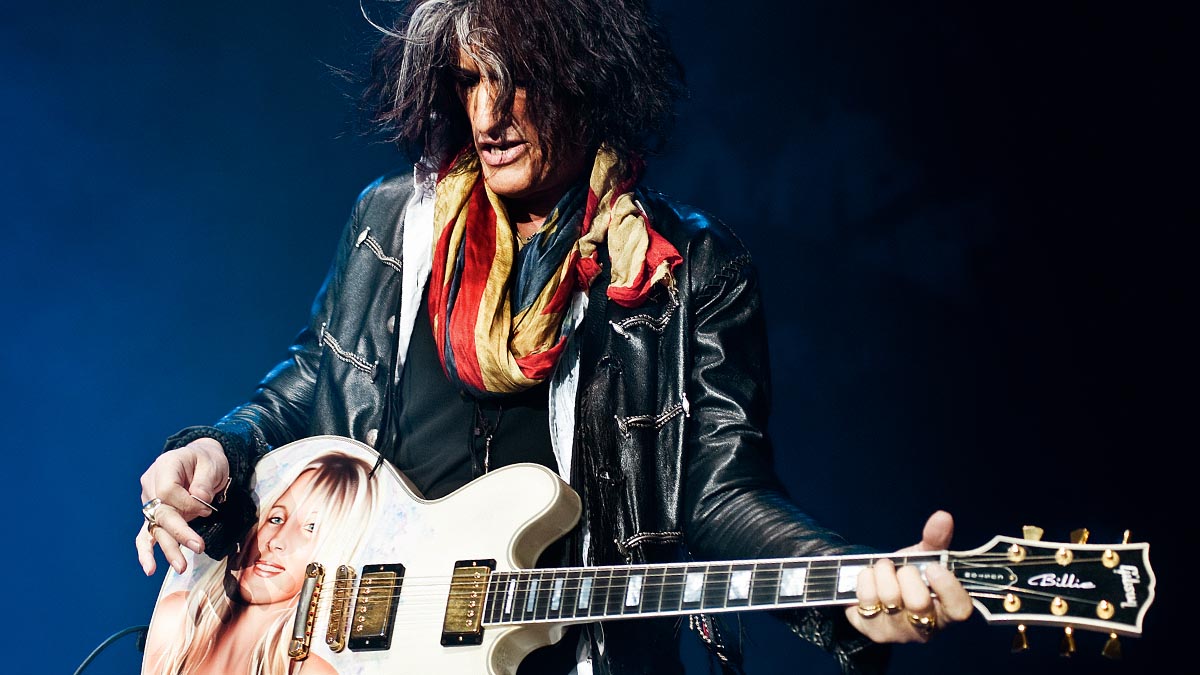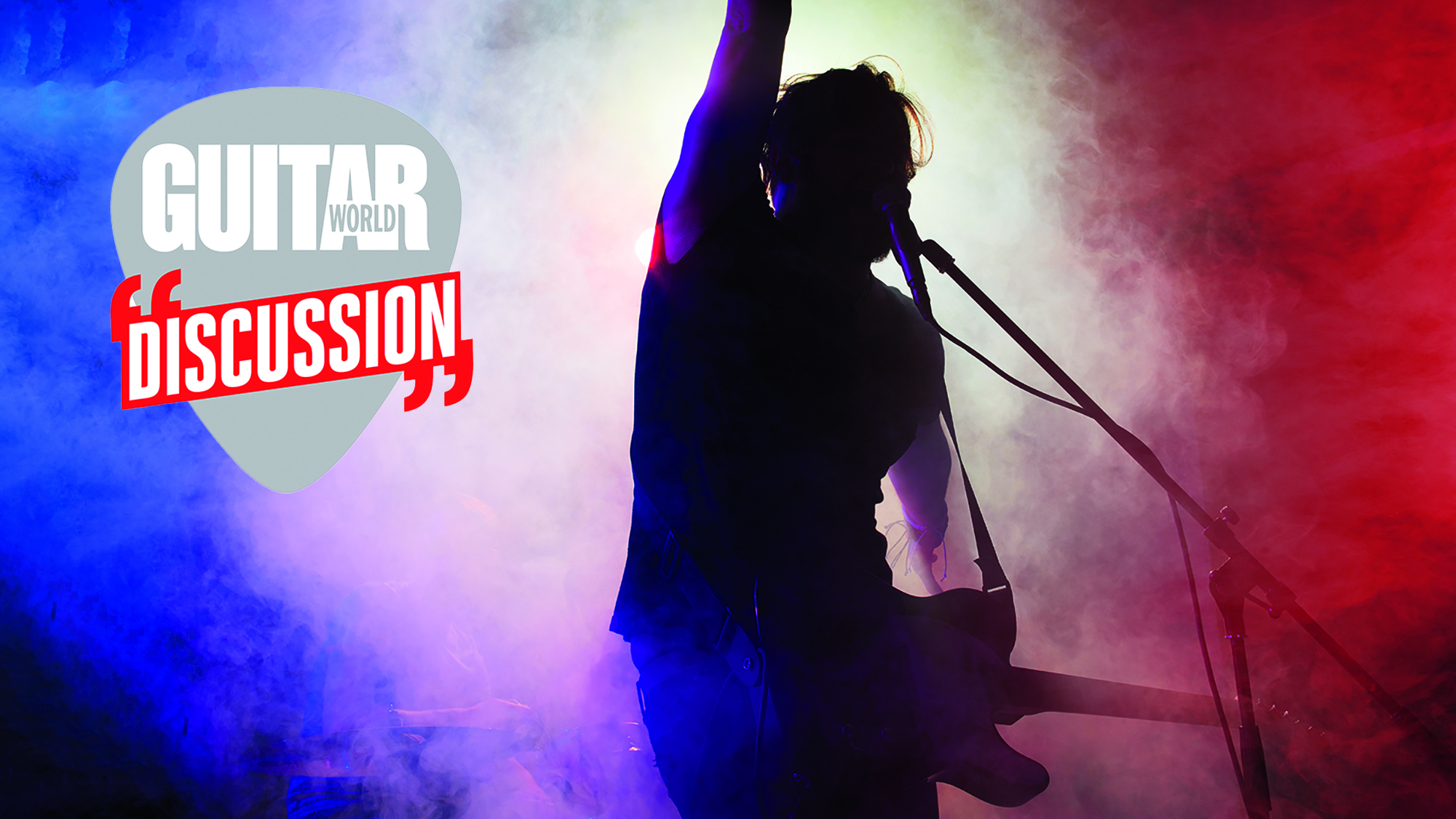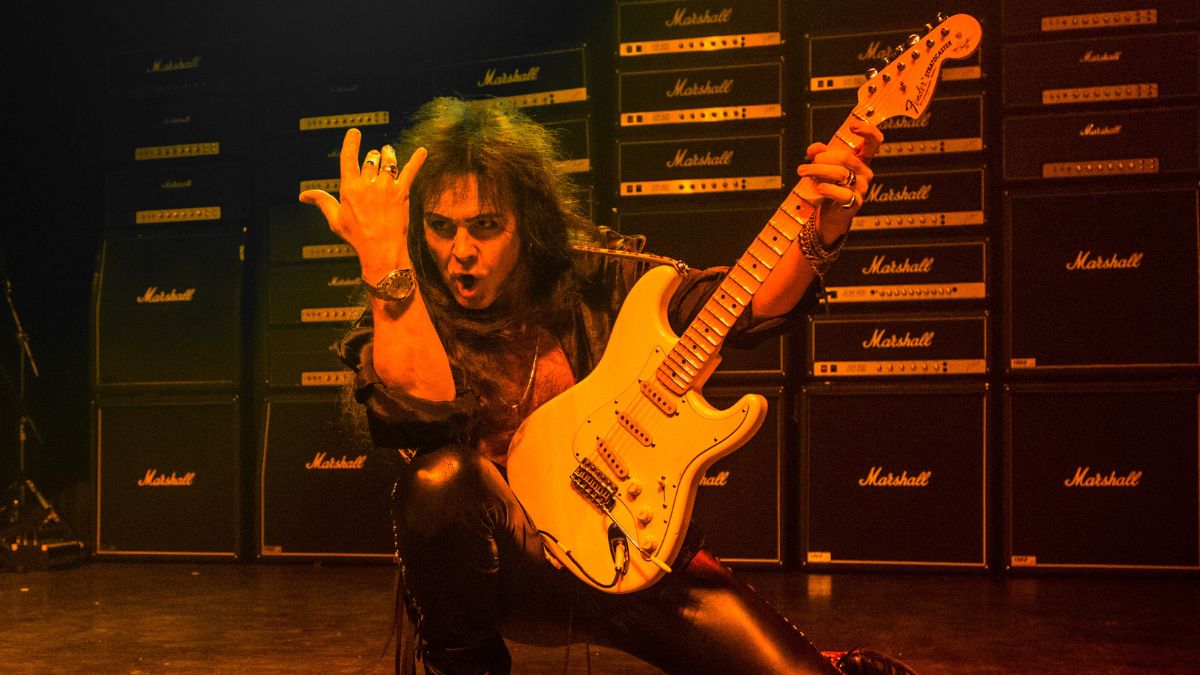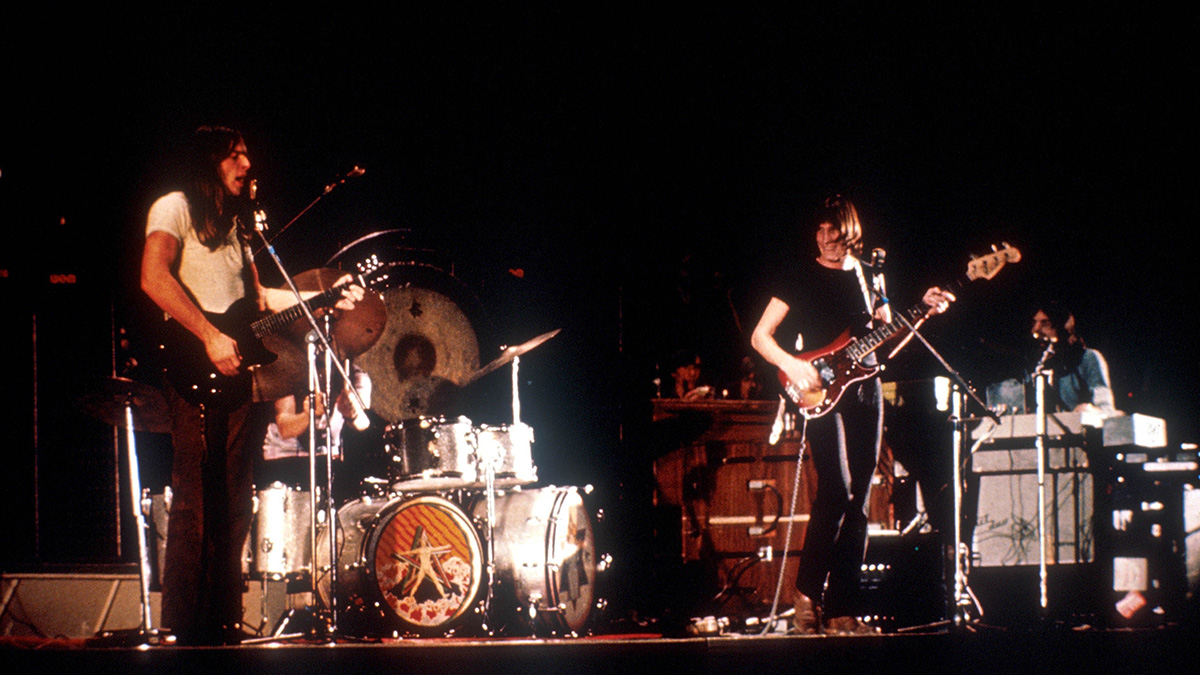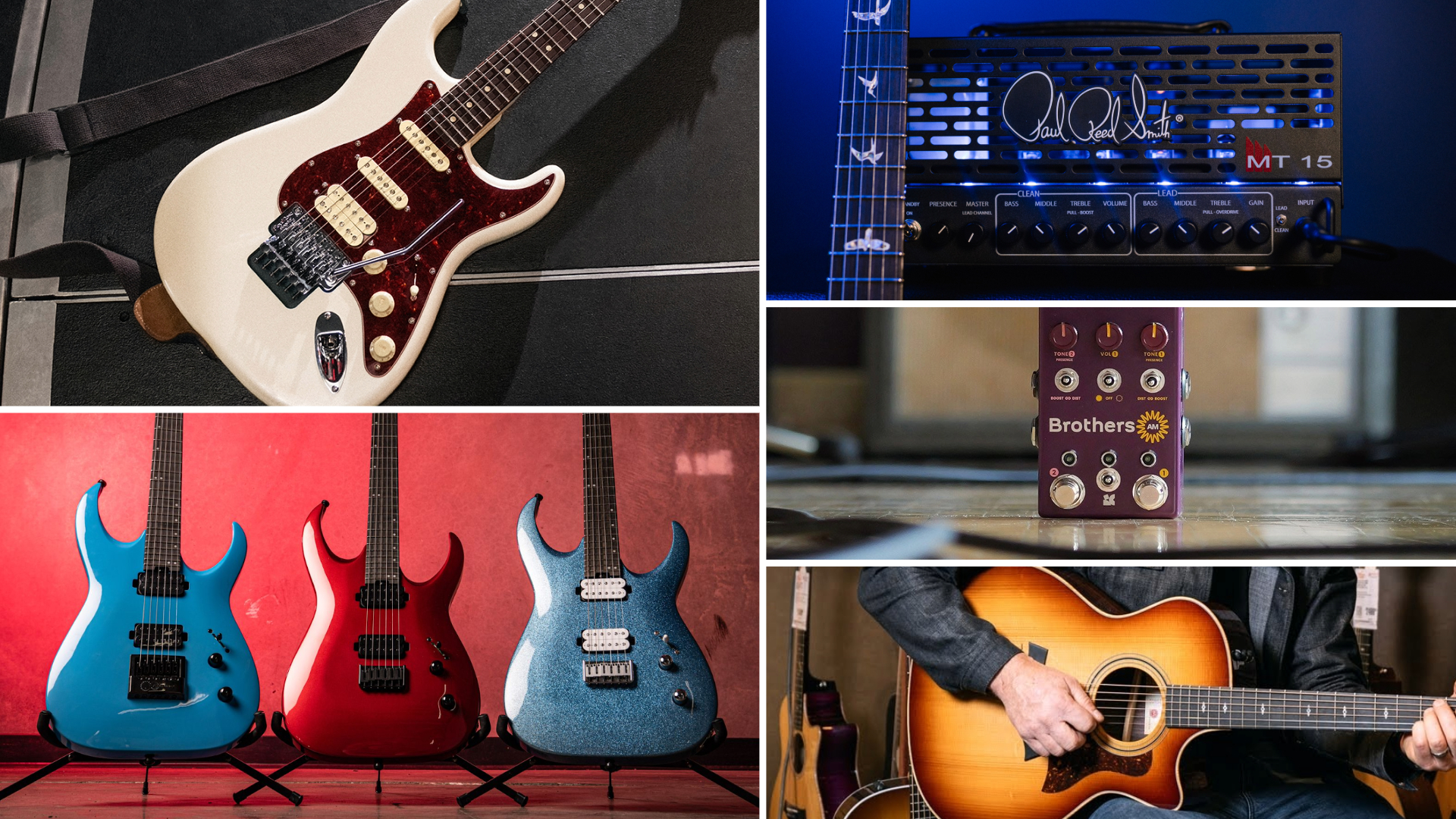Ace Frehley Breaks Down His New Album, 'Spaceman'
“I’ve always been a ‘fly by the seat of his pants’ kinda guy.” Ace Frehley discusses gear, his reunion with Gene Simmons and the genesis of his new album, 'Spaceman.'
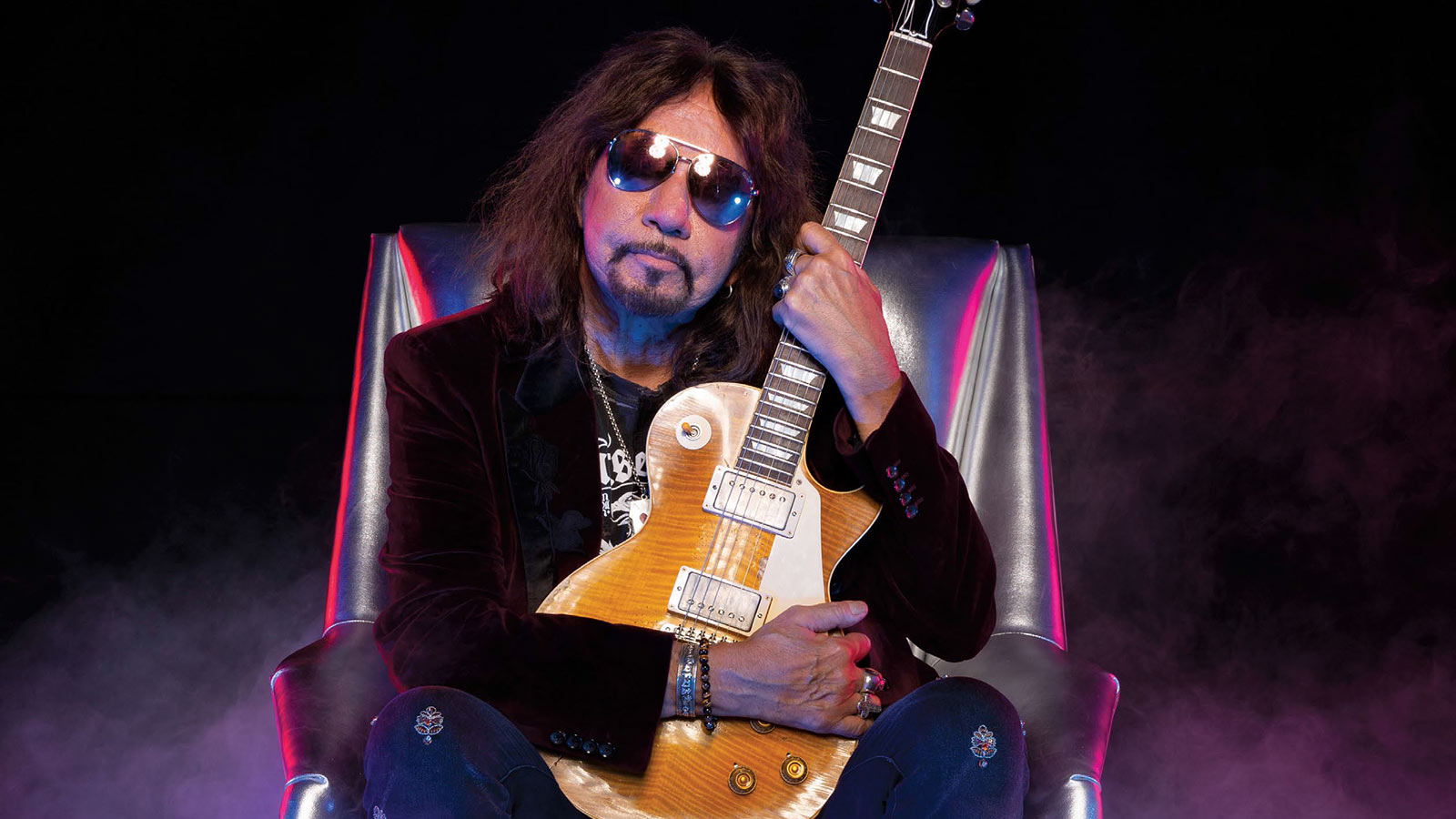
“I’ve always been a ‘fly by the seat of his pants’ kinda guy,” Ace Frehley says, emitting one of his trademark cackles. “I never sit at home for hours trying to figure out a solo, you know? I like to do things spontaneously and without a lot of preparation. They come out more natural and sincere that way.”
Whatever it is Frehley is — or, as it were, isn’t — doing these days, it seems to be working for him, musically speaking. Since 2009 he’s been having something of a late-career renaissance, receiving induction into the Rock and Roll Hall of Fame as a member of Kiss and releasing four very well-received studio albums, including his brand-new release, Spaceman.
The new record finds the 67-year-old revisiting the type of sound that made his first solo album, 1978’s Ace Frehley, such a classic, mixing heavy rockers (“Without You I’m Nothing,” “Bronx Boy”) with hookier, more power-pop-inflected tunes (“Your Wish Is My Command,” “Rockin’ with the Boys”). There’s also an instrumental (“Quantum Flux”), an Eddie Money cover (“I Wanna Go Back”) and even an unexpected guest appearance from Ace’s onetime Kiss band mate, Gene Simmons, who co-wrote two Spaceman tunes and, according to the press release that accompanied the album, also contributed his demonic dexterity on bass to those cuts.
“Actually, he only plays bass on one of them,” Frehley says, then cackles again. “Somebody wrote in the press release that Gene’s on both songs. But it’s not true!”
As for how it was working together again? “It was really easy,” Frehley says. “Really simple. I’ve known Gene for 45 years. He’s one of my rock ’n’ roll brothers. He came over, sat down, started playing and I joined in. It was pretty matter of fact. But, you know, that’s how I do things.”
How did the writing process for Spaceman begin?
Well, you know, one of the things that started the creative process happening this time was actually when Gene came down to my house and we wrote the two songs for the album. One of them, “Without You I’m Nothing,” opens the record. And the other is the song “Your Wish Is My Command.”
Get The Pick Newsletter
All the latest guitar news, interviews, lessons, reviews, deals and more, direct to your inbox!
So how did it happen that the two of you got together?
I called him up and said, “You wanna write a couple of songs with me?” And he said, “Sure.” [laughs] Everybody thinks there’s this mysterious thing you gotta do to get two Kiss guys together, you know? But we all have the other’s cell phone numbers and we just call each other! The same thing happened when I asked Paul [Stanley] to do the video and sing “Fire and Water” on [2016’s] Origins, Vol. 1. It just happened. It was, “Yeah, I’d love to do it!” Okay, great. Let’s do it.
So the secret to getting two former Kiss band members together is just to have one of them actually ask.
Yeah. [laughs] And I’ve got the balls to ask anybody anything.
What was it like to write with Gene Simmons again?
We just sat down with acoustic guitars and he came up with the line “without you I’m nothing.” Then I gave him my Fender Precision and I said, “Let’s lay down a track.” I engineered it in Pro Tools and we got a little demo happening. Then I wrote most of the lyrics and produced it and rearranged it, and that’s what’s on the record. It was easy.
One of the standout songs on the new album is “Rockin’ with the Boys.” I heard that one dates way back to your Kiss days, is that correct?
Yeah. I wrote the chorus to that one in the Seventies, but I could never put together a verse that I thought was good enough to go with it. But I was listening to a demo of it from years ago and I decided to rewrite the chorus, too. The original chorus had that descending line that’s still there, but I decided to have it go up on the second turnaround, which gave the chorus a little more of a kick. Then I wrote the verses six months ago. And the lyrics are all new. They didn’t exist until this year.
I want to ask you about “Bronx Boy,” which has some lyrics that sound pretty autobiographical. How did you come up with that one?
Well, actually, [guitarist] Ronnie Mancuso came over with the finished track but he had completely different lyrics that were completely ridiculous. [laughs] The title of that song was originally called “Green Tea.”
Can you give me a sample lyric from “Green Tea”?
[sings] “I got my green tea / don’t need no co-caine”… It was hysterical! I looked at Ronnie and I said, “Musically I kinda like what you got here. But you know, the lyrics aren’t gonna work.” [laughs] So I completely rewrote them and changed the arrangement a little, redid all the guitars and bass parts, and there you have it.
In “Bronx Boy” you sing lines like “We’ve got our switchblades / our homemade zip guns / we’re ready to rumble / soon as the night comes.” Was that your experience growing up in New York City?
Yeah. The words definitely hit home. I was doing an interview last week and somebody asked me, “What’s a zip gun?” It’s really just a piece of wood cut in an L shape. And you break off an antenna from a car and tape it around the wood with gaffer’s tape. Then you take a clothespin spring and sharpen it and put it on the end of the wood and pull it back. You put a “bullet” in and just have the clothespin thing hit it like a regular firing pin. Basically it’s a homemade gun.
That sounds pretty dangerous.
Yeah. Sometimes they worked, sometimes they blew up in your hand!
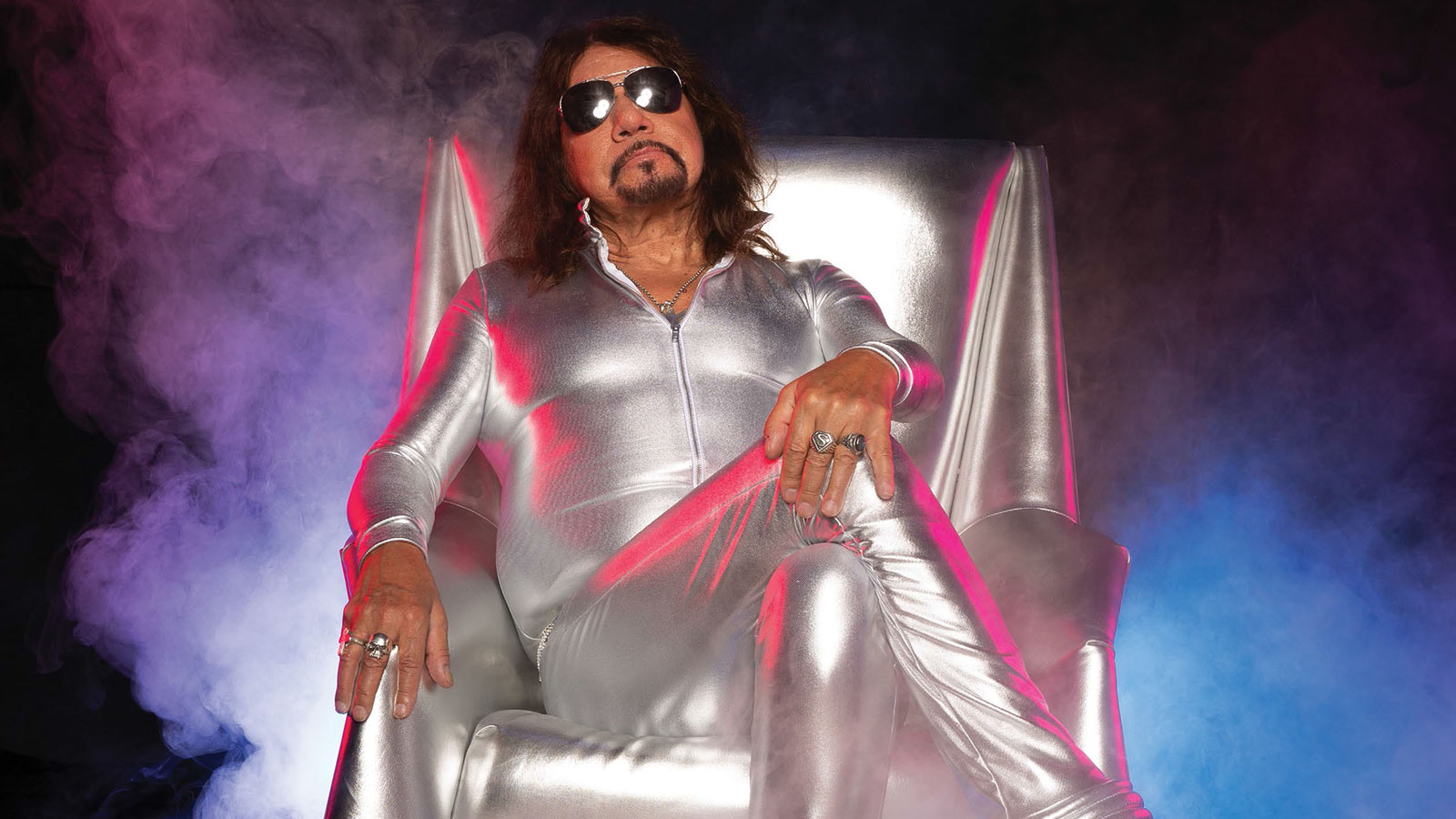
Another great track is “Pursuit of Rock and Roll.”
That song’s been kicking around forever. I had a demo of it but I never thought it was good enough until I rewrote it and changed the chorus. The drum track on that one is vintage Anton Fig. I probably did that with Anton in the Nineties or early 2000s. I pretty much wiped everything else. So I kept the drum track and redid all the bass and guitar and vocals. And again I rewrote the lyrics.
In one of the lines you sing “Don’t need no rap or disco for eternity.”
Yeah. [laughs] it’s pretty self-explanatory. That’s the way I felt then and that’s the way I feel today!
Why did you decide to cover Eddie Money’s “I Wanna Go Back”?
Oh god, I love that song. It was Eddie Money’s comeback hit. I was watching TV last year and that video popped up, and when I heard it I grabbed an acoustic guitar and figured it out. I just started playing and singing it, and it was in my key. So I said to myself, “I have to do this song.” And I think it came out really well. If you listen to Eddie’s version it’s kind of all built around the saxophone. But my version’s obviously all guitars.
You also have an instrumental on the album, “Quantum Flux.”
Yeah. When it comes to my instrumentals, I don’t really think about them too much. I just play something and try to make it evolve into something else. And you know, I had also recorded a blues song with [current Kiss drummer] Eric Singer for this record, and that turned out well. But when I was picking songs, I’m kind of superstitious, and 40 years ago my 1978 solo album came out and that had nine songs, so I wanted to limit this one to nine songs, too. So it came down to the instrumental or the blues song and I ended up dropping the blues song. Because every album I’ve ever released has had an instrumental on it. So that was the thinking behind that. But you know, the blues track may end up on a bonus edition.
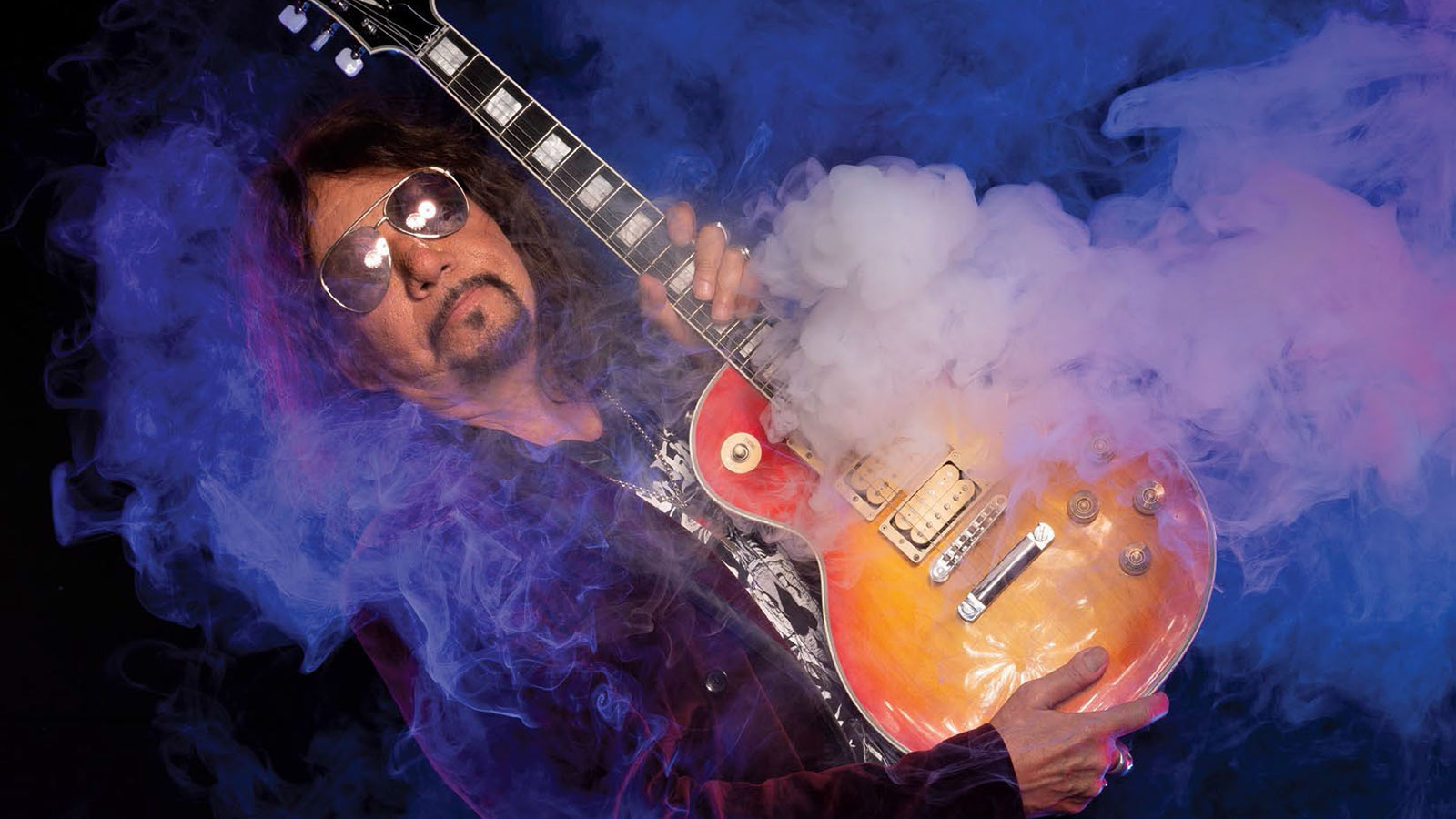
What gear did you use on Spaceman?
There wasn’t one special setup. I have like four or five cabinets inside my shower stall, and then I use different heads — Marshalls, Fenders — and different mic configurations. And I always put a [Shure SM]57 in front of the speaker and then I’ll blend in a second mic. Actually, Blue Microphones makes an inexpensive condenser mic that’s orange [the Blue Spark], and I blended that with the 57. I used that configuration a lot on the record.
Did you say you keep your speaker cabinets in your shower?
Well, in the shower in my recording studio, yeah. Not in my home shower! [laughs] My home studio, it’s kind of the mother-in-law suite. It’s set apart from the house. And then I built the drum room into the corner of the garage, with lots of carpets and soundproofing. Me and my engineer, Alex Salzman, we had a lot of fun building it.
What was your main guitar on Spaceman?
I’ll usually record the basic track with a Les Paul — I’ve been using a lot of the ’59 reissues that Gibson gave me. The aged ones sound great — just like an original ’59. And then I double that with a Strat or a Tele. And a lot of the songs have an acoustic on the track as well. They’re just buried down in the mix.
Do you remember your first formative musical moment?
It was a combination of things. One thing I remember was when I was 15 I played hooky and went down to a [New York DJ] Murray the K show that Mitch Ryder & the Detroit Wheels were headlining. And lo and behold, the Who and the Cream were opening up. That pretty much changed my life. And then a year later Led Zeppelin came out and I saw their first New York appearance. That was the clincher.
Is there any new music that’s caught your ear recently?
Not really. I still listen to the Zeppelin and the Stones and the Cream — the same stuff I listened to back when I was a teenager. [laughs]
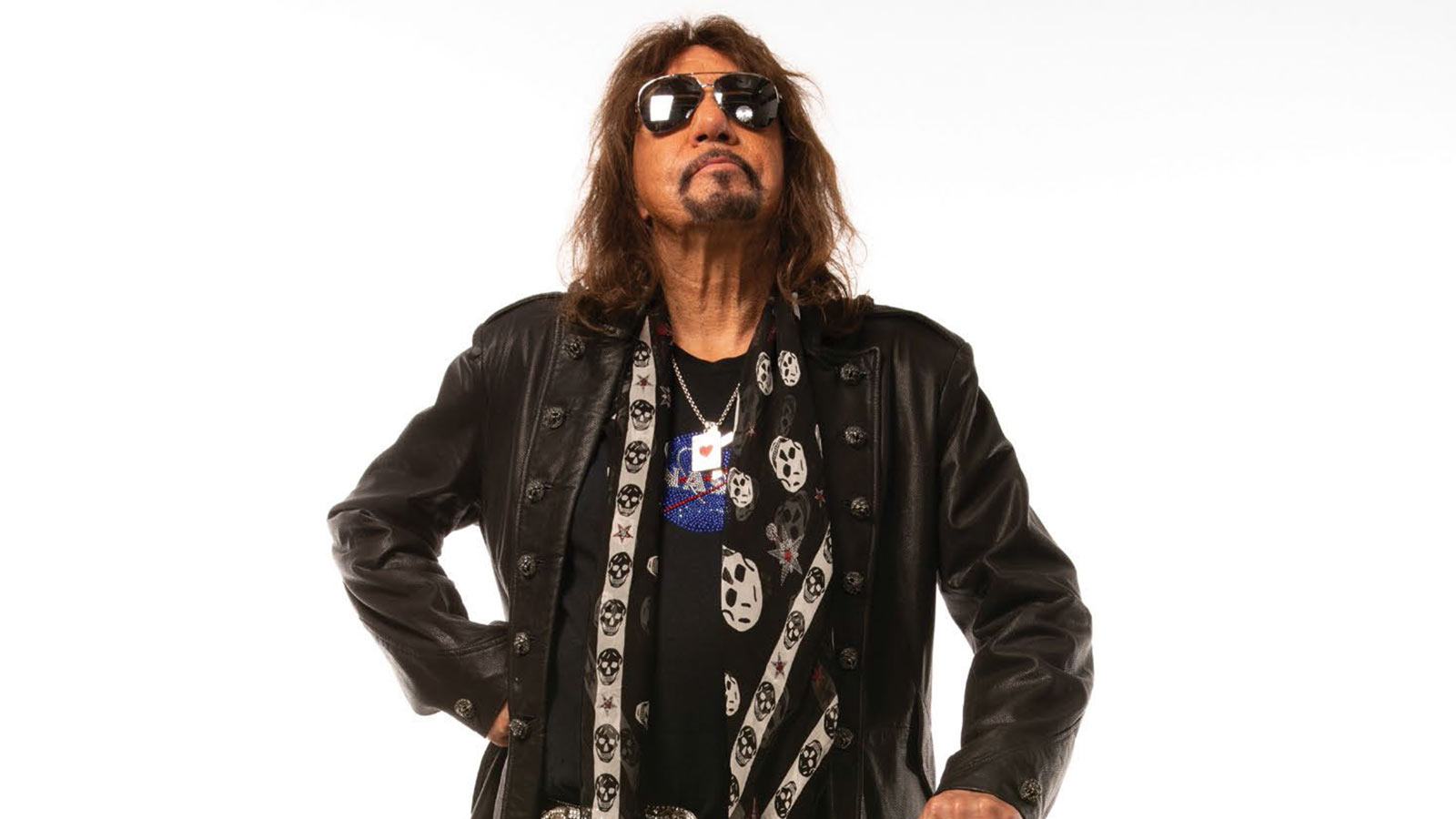
I’ve heard you’re working on a follow-up to your 2012 autobiography, No Regrets. How is that coming along?
I’ve probably written about a third of it. But it’s all on little pieces of paper and stuff. I’ll remember a story when I’m in a restaurant or something, and just write it down on a napkin, you know? It’s kinda like that.
And It’s funny — I just did a show north of San Francisco, in Petaluma, and I realized my old publicity agent from the Casablanca [Records] days lives there. And so we met up and reminisced for about an hour and a half. I went, “This is some good stuff! You’ve gotta write it down and email it to me so I can put it in my second book!” Because he was telling me a lot of stuff I completely forgot about. And you know, most of the stories are from the days when I used to get loaded. But now I’m in one of the best places I’ve ever been in. I'll be sober 11 years on September 15.
At this point in your life, do you feel you’re still learning things on the guitar?
All the time. I’ve never taken a guitar lesson and I don’t even know how to describe half the things I play. I had a lot of trouble doing an instructional video back in 2009 because I didn’t know the terminology of the riffs I was playing. So I had to hire this guy who stood off-camera to try to help me explain to people who are well-versed in musical terms what the hell I’m doing! [laughs] Half the stuff I do, I don’t know what it’s called. But you know, if it sounds good, I do it.
Rich is the co-author of the best-selling Nöthin' But a Good Time: The Uncensored History of the '80s Hard Rock Explosion. He is also a recording and performing musician, and a former editor of Guitar World magazine and executive editor of Guitar Aficionado magazine. He has authored several additional books, among them Kurt Cobain: Montage of Heck, the companion to the documentary of the same name.




